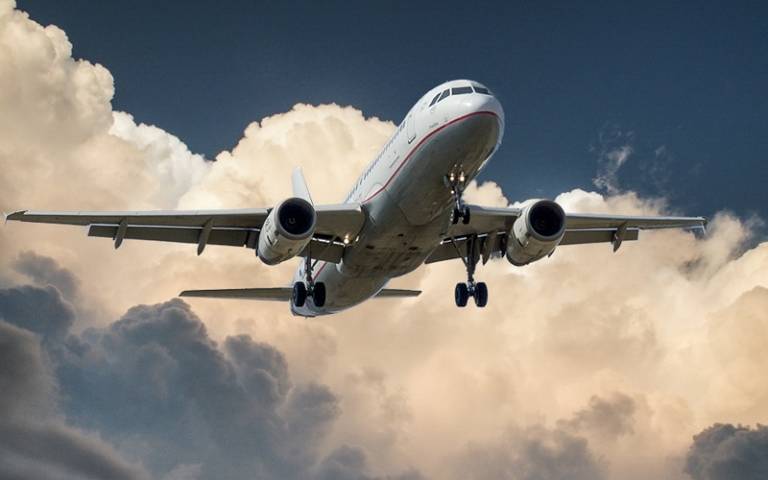UCL academics win British Airways’ Sustainable Aviation Fuels Academic Challenge
7 May 2019
A team of PhD candidates and their academic supervisor from UCL Chemical Engineering has won the BA 2119 Future of Fuels challenge, tackling the question of how to power a long-haul flight for at least five hours and produce zero CO2 emissions.

The team’s success follows a six month-long competition where 11 universities were whittled down to three for the final.
The UCL team’s solution would turn household waste into jet fuel, building plans to convert the waste near landfill sites across the country. The team estimates that this could deliver 3.5 million tonnes of jet fuel annually by 2050, resulting in negative emissions and the equivalent of taking more than 5.5 million cars off the road every year.
The team’s prize was a £25,000 investment and an invitation to present to the Board of IAG, BA’s parent company, as well as at the IATA Alternative Fuels Symposium in New Orleans and the Annual Sustainability Summit in Montreal.
The challenge is part of the BA 2119 Flight of the Future programme which is exploring the next 100 years in aviation for fuels, careers and customer experience. The Future of Fuels Challenge called on UK universities to develop a new or different pathway to achieve global leadership in the development of sustainable aviation fuels.
IAG will invest $400m in total on alternative sustainable fuel development over the next 20 years
Team lead Dr Massimiliano Materazzi, from UCL’s Department of Chemical Engineering and Research Fellow at the Royal Academy of Engineering said: “We were so excited just to make it through to the final – but to receive the top prize is overwhelming. This is evidence that airlines are taking this challenge seriously and are starting to actively engage with academia to find sustainable solutions. We look forward to progressing our concept which will hopefully see the development of the fuel of the future.”
Alex Cruz, Chairman and Chief Executive of British Airways, said: “There is a huge opportunity for the UK to be a global leader in sustainable aviation fuels. We know that there is a future for electrification, a pathway for organic household waste to sustainable jet fuel and this competition addresses what other pathways there could be to decarbonise aviation. This winning proposal from UCL is incredibly exciting and we look forward to exploring it with them.”
Links
Image
Source
Media contact
Kate Corry
Tel: +44 (0)20 3108 6995
Email: k.corry [at] ucl.ac.uk
 Close
Close

